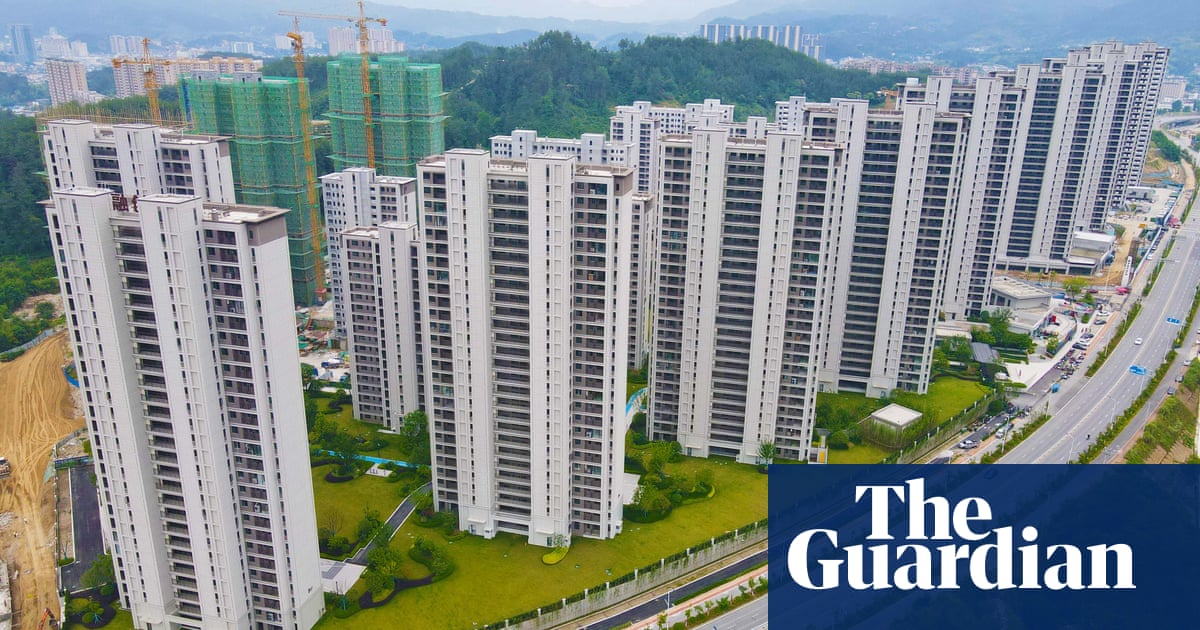- cross-posted to:
- [email protected]
- cross-posted to:
- [email protected]
The industry that has traditionally powered about a quarter of GDP has been in a downward spiral that policymakers have struggled to halt
All across China, from Beijing in the north, to Shenzhen in the south, millions of newly built homes stand empty and unwanted. There were nearly 391m sq metres of unsold residential property in China as of April, according to the National Bureau of Statistics. That is the equivalent of Manchester and Birmingham combined – and then some – sitting as vacant, unwanted property.
This glut of idle property has caused a headache for the government, shaken the world’s second largest economy and raised tensions over the purpose of housebuilding in a nation where property investment had been viewed as a safe bet.
Since the real estate sector was sent into a tailspin in 2020, caused by the pandemic and a sudden regulatory crackdown, the industry that has traditionally powered about one-quarter of GDP has been in a downward spiral that policymakers have struggled to halt.
The crux of the problem is that, with shaky faith in the economy and big property developers failing to deliver on paid-for apartments, potential homebuyers are keeping their money out of the market.



Well they could use them as makeshift landfills for their garbage EVs, but people cannot live in them as there is no water, gas or electicity anywhere. And that’s only half the problem because there are far more empty shells for an excuse of a home than there are people to populate them. It’s one giant ponzi scheme that got completely out of hand over a decade ago and the government struggles a lot to restrain and keep it going at the same time so it doesn’t collapse.
yeah it is funny that an article talking about empty, unwanted units also talks about not delivering for poeple that bought them. Its a wierd situation.